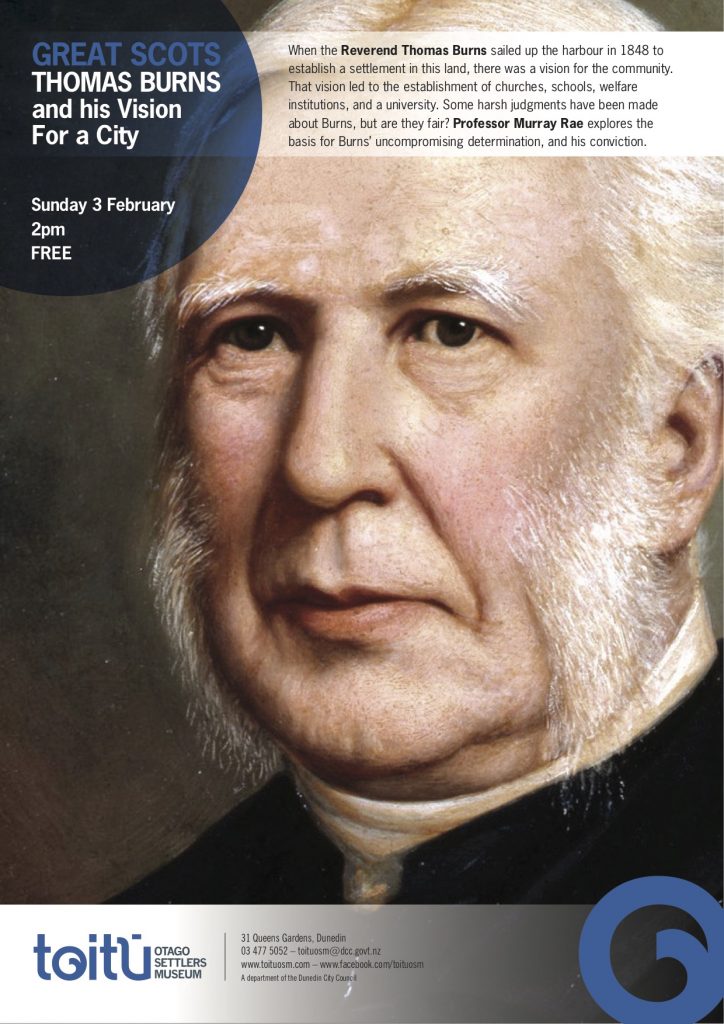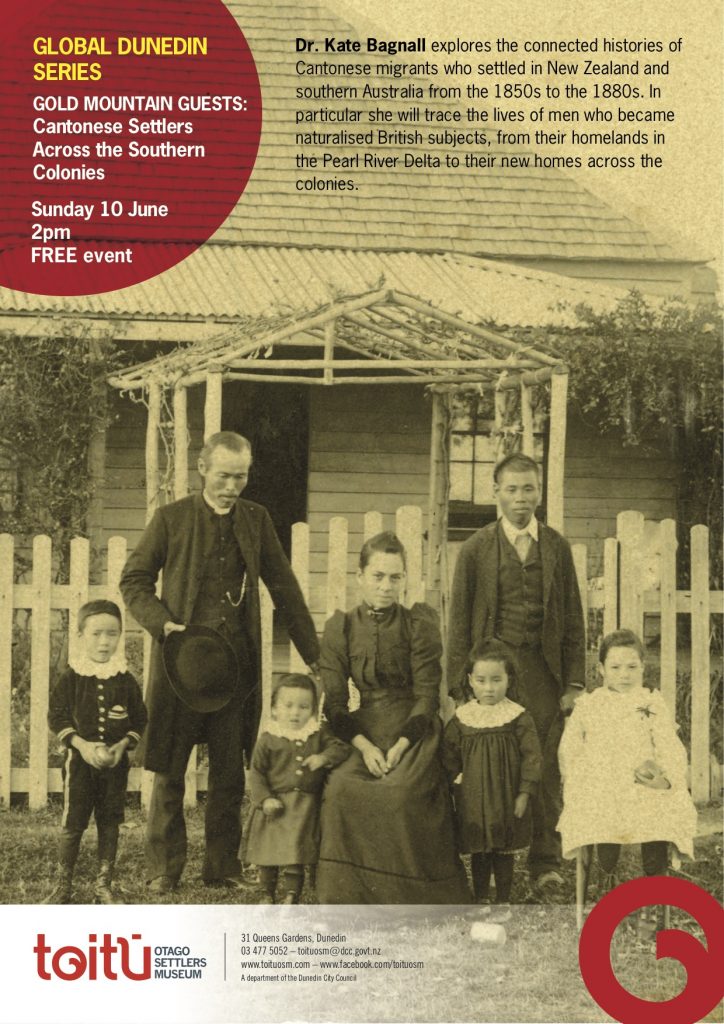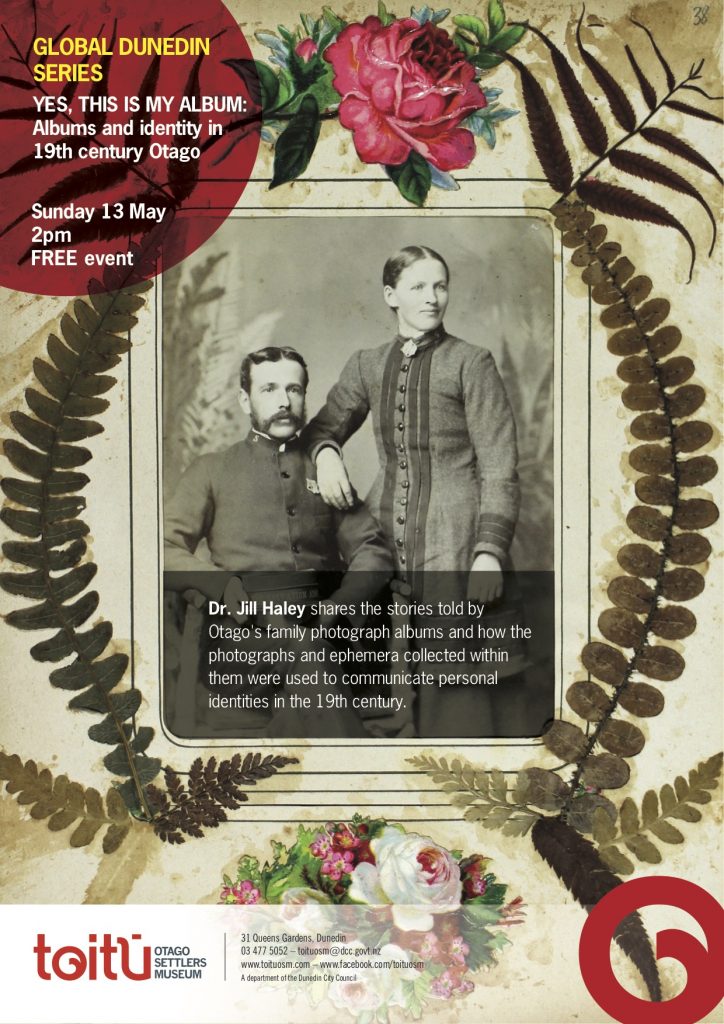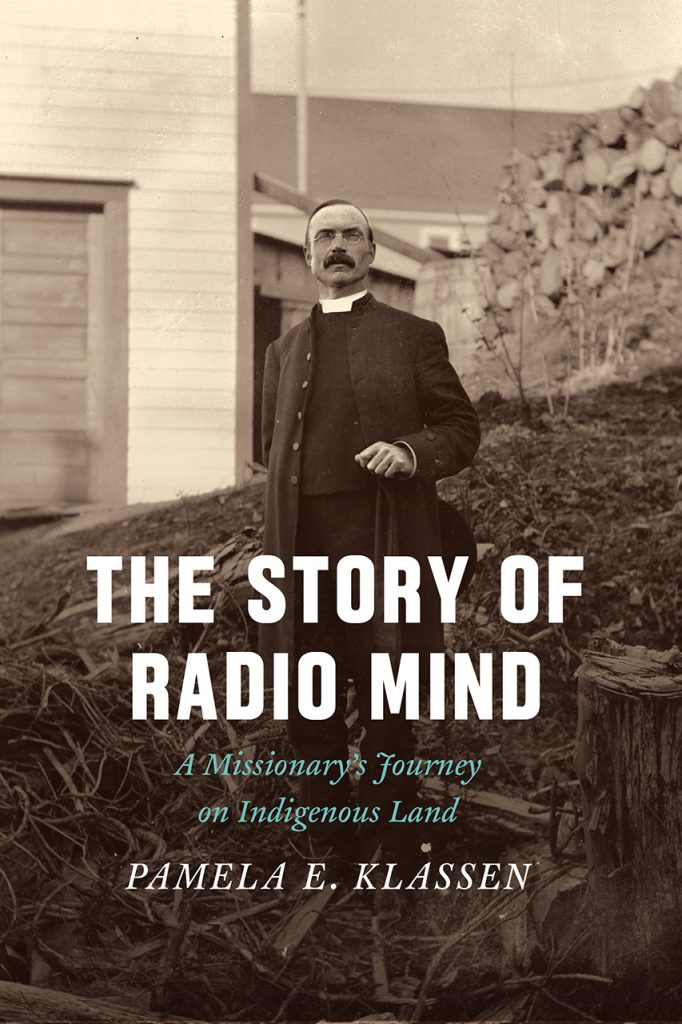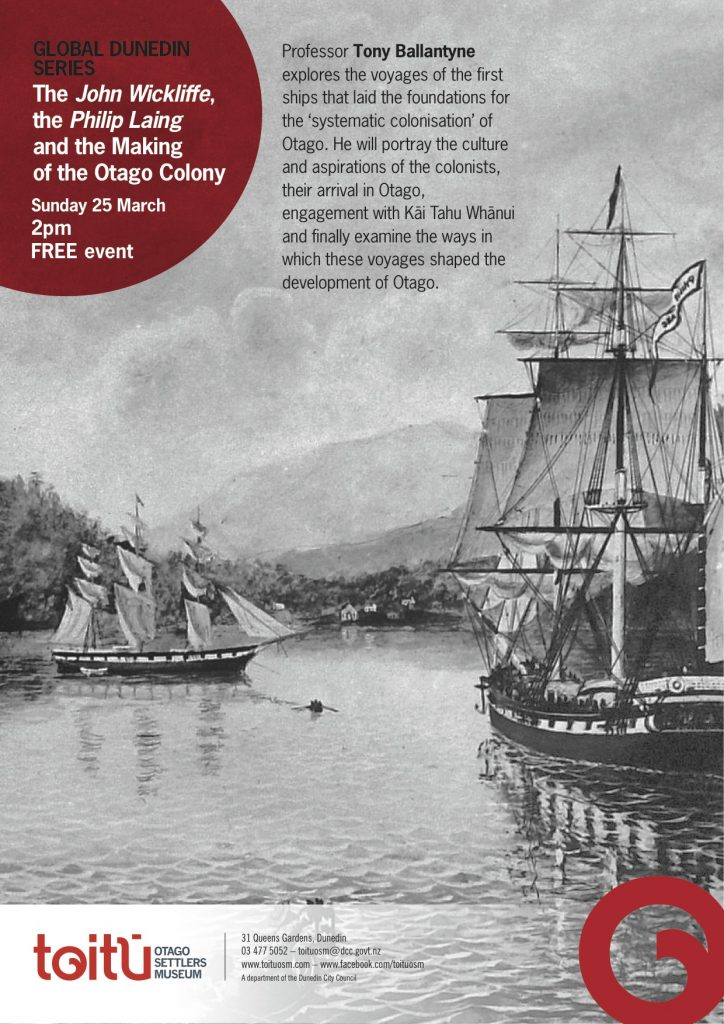Great Scots Lecture Series
During 2019, Toitū is hosting a series of free lectures on the theme of Great Scots organised by Prof. Liam McIlvanney of the Centre for Irish and Scottish Studies. The lectures series kicks off at 2pm on Sunday 3 February with a talk by Prof. Murray Rae (Theology) on the Reverend Thomas Burns and his vision for the Otago colony.
Keynote talk by Lachy Paterson
Centre member, Associate Professor Lachy Paterson is giving the keynote at the annual University of Otago Centre for the Book conference at 5.30-6.30pm, Thursday 1st November in the Moot Court, 10th floor of the Faculty of Law. Please feel free to come along.
The conference theme this year is Translation and Acculturation. Lachy will present “Whakamāoritanga Whakapākehātanga: Translations between Māori and English” in which he will be discussing issues pertaining to translation, both now and from New Zealand’s colonial past.
Public Lecture: Thinking the Empire Whole
Thinking the Empire Whole
Professor Steven Pincus
Thomas E. Donnelly Professor of British History, University of Chicago
The history of the British Empire to 1784 has been hopelessly fractured. Each bit of the Empire is discussed separately, the binary relationship between proto-nations and the imperial metropole. This was not how folks in the seventeenth and eighteenth century experienced their world. They thought and wrote about their empire as a whole. This empire was shaped by institutions and riven by debates about how best to run an empire. While some innovative scholars have recently deployed the paradigm of “settler colonialism” to attempt to reconnect and compare similar phenomena, this paradigm is insufficient because it marginalizes the imperial state, narrows the range of political economic debate, and homogenizes both the settler and indigenous experience. By thinking the empire whole it is possible to reinterpret seminal moments like the imperial crisis of the 1760s–1780s.
Location: Archway 3, 5:30pm, Wednesday 15 August, 2018
Kate Bagnall to give Global Dunedin Lecture
We’re really delighted to be hosting Kate Bagnall (University of Wollongong) for our next Global Dunedin Lecture at Toitū on Sunday 10 June. Kate is currently researching the stories of Chinese migrants who sought citizenship in Canada, Australia and New Zealand between 1860 and 1920. As she notes, the history of Chinese naturalisation in British settler colonies of the Pacific Rim is hidden, mostly because it has been seen through the lens of Chinese exclusion, a history of when it was prohibited by law rather than of when it was allowed. In this project, Kate is exploring the lives of naturalised Chinese, intertwining biographies and case studies with historical analysis of naturalisation law and policy, linking lives with legislation. Her aim is to understand why and in what circumstances Chinese migrants became British subjects, and what it meant for them.
Kate will discuss aspects of this research project at her Global Dunedin Lecture “Gold Mountain Guests”. This is a free event and open to the public. Hope to see you there!
Photography and Global Dunedin
The Centre’s monthly Global Dunedin Lecture Series resumes on Sunday 13 May with a talk by Dr. Jill Haley (Canterbury Museum), who will discuss the role of colonial photography and album-making in shaping the identities of Otago’s 19th century settlers. Jill’s talk will take place at Toitū’s Auditorium, starting at 2pm. All welcome!
“Redcoat and Rifle” at Toitū
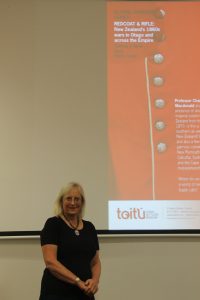 Professor Charlotte Macdonald from Victoria University drew a large crowd to the Centre’s second Global Dunedin lecture at Toitū Settlers Museum today. Charlotte brought Dunedin into the larger picture of the global circulation of soldiers and their belongings that stretched between Britain, India and the rest of the Empire. Her wide-ranging talk included the 70th Regiment who were transferred from India (where they had fought during the Indian Rebellion) to Auckland in 1861. While some stayed in the North Island and fought in the Waikato campaign, one contingent was transferred to Dunedin where they established themselves on what eventually became the Arthur St School. Soon after gold had been discovered in Central Otago, the contingent helped keep the peace and good order until they left in 1863. Charlotte’s research comes out of her Marsden-funded project, Soliders of Empire: Garrison and Empire in the 19th Century. The talk was followed by a lively question time. Many thanks to Charlotte for her rich and engaging lecture.
Professor Charlotte Macdonald from Victoria University drew a large crowd to the Centre’s second Global Dunedin lecture at Toitū Settlers Museum today. Charlotte brought Dunedin into the larger picture of the global circulation of soldiers and their belongings that stretched between Britain, India and the rest of the Empire. Her wide-ranging talk included the 70th Regiment who were transferred from India (where they had fought during the Indian Rebellion) to Auckland in 1861. While some stayed in the North Island and fought in the Waikato campaign, one contingent was transferred to Dunedin where they established themselves on what eventually became the Arthur St School. Soon after gold had been discovered in Central Otago, the contingent helped keep the peace and good order until they left in 1863. Charlotte’s research comes out of her Marsden-funded project, Soliders of Empire: Garrison and Empire in the 19th Century. The talk was followed by a lively question time. Many thanks to Charlotte for her rich and engaging lecture.
Successful Start to Global Dunedin
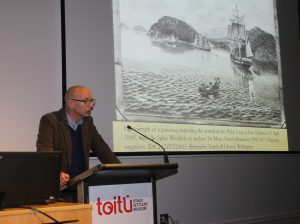 The first Global Dunedin programme at Toitū Otago Settlers Museum began with Centre Co-Director, Professor Tony Ballantyne, presenting on “The John Wickliffe, the Philip Laing and the Making of the Otago Colony”. Tony’s lecture was wide-ranging, taking us from the initial landing of the Free Church settlers, and their interactions with Kāi Tahu, right through to the 50th anniversary, where the the debate centred on who truly deserved to be included into the category of “early” settler.
The first Global Dunedin programme at Toitū Otago Settlers Museum began with Centre Co-Director, Professor Tony Ballantyne, presenting on “The John Wickliffe, the Philip Laing and the Making of the Otago Colony”. Tony’s lecture was wide-ranging, taking us from the initial landing of the Free Church settlers, and their interactions with Kāi Tahu, right through to the 50th anniversary, where the the debate centred on who truly deserved to be included into the category of “early” settler.
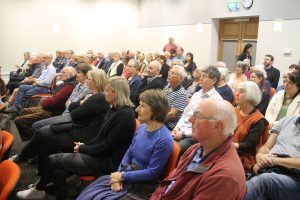 The Centre’s Global Otago programme brings engaging speakers to Toitū, who can place Dunedin in a global context, whether in the past, present or future. This lecture was a resounding success, with more seats having to be brought in to accommodate the crowd. Professor Charlotte Macdonald will be delivering the April lecture; details will be posted soon.
The Centre’s Global Otago programme brings engaging speakers to Toitū, who can place Dunedin in a global context, whether in the past, present or future. This lecture was a resounding success, with more seats having to be brought in to accommodate the crowd. Professor Charlotte Macdonald will be delivering the April lecture; details will be posted soon.
Global Dunedin Speaker Series 2018
This year the Centre is excited to be collaborating with Toitū on a Global Dunedin Speaker Series. It runs on a monthly basis, on a Sunday afternoon, and all talks take place at the museum Auditorium. This years series will feature local, national and international speakers, including Charlotte Macdonald (Victoria University of Wellington), Jill Haley (Canterbury Museum), Kate Bagnall (University of Wollongong), Rosi Crane (Otago Museum), Lea Doughty (Otago) and Ben Schrader (Wellington). We’ll be posting regular updates about this series throughout the year.
Tony Ballantyne will kick off the series on March 25th (see poster). We hope to see you there.
Centre News and Forthcoming Events
The Centre has had a busy start to 2018. We opened the year with an international symposium, co-convened by Judy Bennett (Otago) and Paul D’Arcy (ANU) on ‘Colonial Environmental Transformations and responses in the Pacific World: Crops, Disease, Pests, and catastrophe’, held at the Hocken in mid-February. Across two days we were privileged to hear from scholars working at the cutting-edge of Pacific environmental history. Papers touched on long-distance animal migrations, agricultural transformations, the politics of phosphate mining in French Oceania, climate change, genetic modification, and the impacts of major health events on indigenous communities, notably the influenza pandemic in Guam. Many thanks to the organisers for putting together such an exciting programme and to the presenters for sharing their work: Vicki Luker, Tamatoa Bambridge, Ryan Tucker Jones, Jane Samson, Matt K. Matsuda, Nicholas Hoare, and Anne Perez Hattori. We look forward to seeing the papers emerge in published form in the near future.
In February and early March the Centre had the pleasure of hosting a visiting scholar, Associate Professor Aaron Glass from Bard Graduate Center, New York. While in Dunedin Aaron presented on his digital humanities project as part of a well-attended open seminar with Associate Professor Conal McCarthy (Victoria University of Wellington) concerned with digital collections, museums and indigenous futures. Aaron also presented a workshop at Otago Museum on public anthropology and visited Te Papa Tongarewa where he also shared his research. Many thanks to the team at Te Papa, particularly Bronwyn Labrum, for making Aaron’s visit possible.
A number of events planned for the remainder of 2018 including an international workshop on new histories of whaling in the Pacific (at the University of Hawai’i-Manoa) in late June, and symposia on rural history and indigenous writing in November.
Throughout 2018 the Centre is sponsoring the Global Dunedin public lectures at Toitū Otago Settlers Museum. This is a monthly series of free talks running from March to October and we have a great line-up of speakers including Charlotte Macdonald (Victoria University of Wellington), Jill Haley (Canterbury Museum) and Kate Bagnall (University of Wollongong) along with many others. The series kicks off on 25 March with a talk by Centre co-director, Professor Tony Ballantyne (see poster). All are welcome!

